Risks and opportunities
FUTURE PROOFING
KEY RISK CATEGORIES
Global economic and geo-political environment
WHAT ARE THE RISKS
Tata Motors Group's expanding global presence increases its exposure to global economic, geopolitical and other external factors (BREXIT, China, political instability, rising protectionism, wars, terrorism and natural disasters) that may negatively impact its business
WHAT ARE WE DOING ABOUT IT
The Group continues to maintain its international manufacturing footprint and a balanced retail sales profile across its key regions. It also continues to closely monitor and assess the risk of global developments and implement mitigation plans where appropriate.

Competitive
business
efficiency
Delivering on operational efficiency objectives is key to sustaining profitable growth. Uncertainty relating to the achievement of the projected benefits needs to be managed to a minimum.
With the launch of Turnaround 2.0, TML intends to drive its journey towards Competitive, Consistent and Cash-accretive growth, successfully navigating the headwinds in the Indian automotive market. The broader objectives of the plan include: ‘Win Decisively’ in CV, ‘Win Sustainably’ in PV, ‘Win Proactively’ in EV and ‘Embed the turnaround culture’. JLR has launched Project Charge and Project Accelerate to conserve cash, reduce costs and increase operational efficiency. From 2020, JLR will be introducing its next-generation modular architecture, which will streamline engineering and manufacturing processes and reduce complexity with the aim to reduce costs and improve quality.

Brand
positioning
Brand positioning is becoming increasingly challenging, as the dynamics of the automotive market (like automated driving, electrification and digital connectivity) and the competitive pressures from existing automotive manufacturers and new disruptive entrants evolve.
Recent successful model launches (like Harrier, Nexon, Tiago, Tigor EV, Jaguar I-PACE, Jaguar E-PACE, Range Rover Velar and Range Rover Evoque) have broadened the Group's product range to existing and new customers in established and emerging segments. In addition, the Group regularly monitors the perception of its brands to quickly identify and address uncertainties that may arise to inform how it articulates brand values to its customers.


WHERE DO WE SEE THE OPPORTUNITIES | CAPITALS IMPACTED |
| Global economic growth in developed and emerging markets presents opportunities to increase sales. Global growth and rising incomes create opportunities in both new and existing geographical markets as well as new and existing segments. | 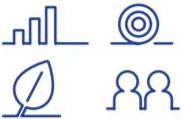 |
| Enhanced overall business efficiency will yield sustainable financial results and greater opportunities for growth and continued investment in the Group's product portfolio and new technologies. | 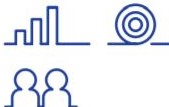 |
| The Group continue to strengthen its brands by creating greater brand association imbibing innovation, technological advancement and customer trends and feedback into its expanding and evolving product portfolio and services. | 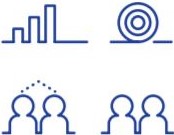 |
KEY RISK CATEGORIES
Environmental regulations and compliance
WHAT ARE THE RISKS
The Group is subject to a rapidly evolving regulatory landscape with associated laws, regulations and policies that impact the vehicles it produces and its manufacturing facilities (like CO2 emissions, fuel economy and noxious/air quality emissions). Continued adverse public perception of diesel-powered vehicles, largely driven by the media and government policy, could sustain declining diesel sales and customer uncertainty, primarily in the UK and Europe.
WHAT ARE WE DOING ABOUT IT
The Group is committed to offering its customers a wide range of clean, sustainable propulsion technologies – whether petrol, diesel, plug-in and mild hybrids or EVs. TML has achieved the BS VI engine certification milestone with intense design and development focus, leveraging in-house capabilities and those of the technology partners. TML is also leveraging synergies across Tata group companies to drive electrification. EVs have been strongly positioned to address tailpipe emission concerns. JLR has invested substantially in the development of its next-gen modular architecture, the in-house manufacture and continued refinement of its internal combustion engines and electrification technologies. JLR retains an EU derogation permitting alternative fleet average CO2 targets. The continued refinement of its internal combustion engines and production flexibility within its EMC remains a priority.

Rapid
technology
change
The fast pace of technological development together with the scarcity of specialist resources could result in a significant change in the automotive industry and increases the risk of delivering superior products demanded by current and future customers.
The Group continue to invest in R&D and also continues its strategic focus on key technology areas, including ACES, with the aim of launching pioneering products ahead of its competition.

Product liability
and recalls
Potential defects and quality deficiencies could increase the Group's exposure to risks associated with product liability.
Enact swift management of recalls to minimise customer impact and subsequent warranty costs. Proactively issue technical updates to dealer network to efficiently manage potential defects.


WHERE DO WE SEE THE OPPORTUNITIES | CAPITALS IMPACTED |
| TML is the first OEM in India to achieve BS VI certification for a naturally aspirated Compressed Natural Gas (CNG) engine for CVs. TML is pioneering India's EV transition and driving the shift towards sustainable mobility solutions by leveraging subsidies to drive the initial EV push, while building other ecosystem pillars. JLR was the first premium manufacturer to introduce a battery EV into mainstream production with the Jaguar I-Pace and has introduced the Range Rover and Range Rover Sport PHEV models as well. From 2020, JLR will offer an electrified option for each of its models. JLR's diesel engines are as clean as its petrol engines, with significantly reduced CO2 and NOx emissions in real-world usage and 20 to 30% better fuel consumption and CO2 emissions. JLR's new D150 engine meets RDE2 standards in advance of the 2021 requirement. This presents opportunity for tax incentives in the UK and a solid platform for further refinements. | 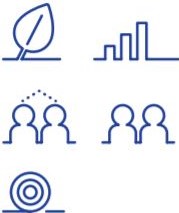 |
| Substantial changes to the market (like ACES) enables the Group to focus on launching industry-defining products and services ahead of its competition as well as strengthening partnerships with global technological organisations. | 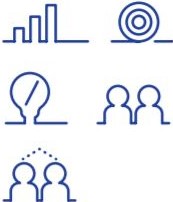 |
| Enhanced use of vehicle connectivity and digital capability to analyse potential failure modes and to implement corrections. | 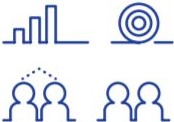 |